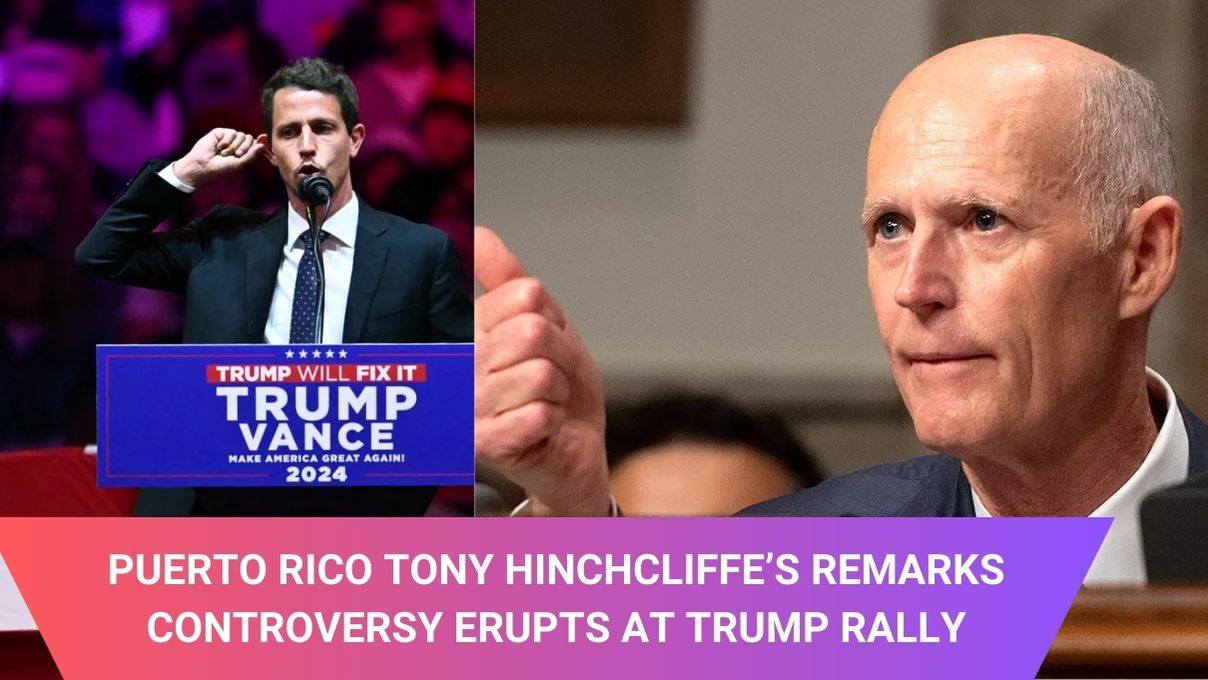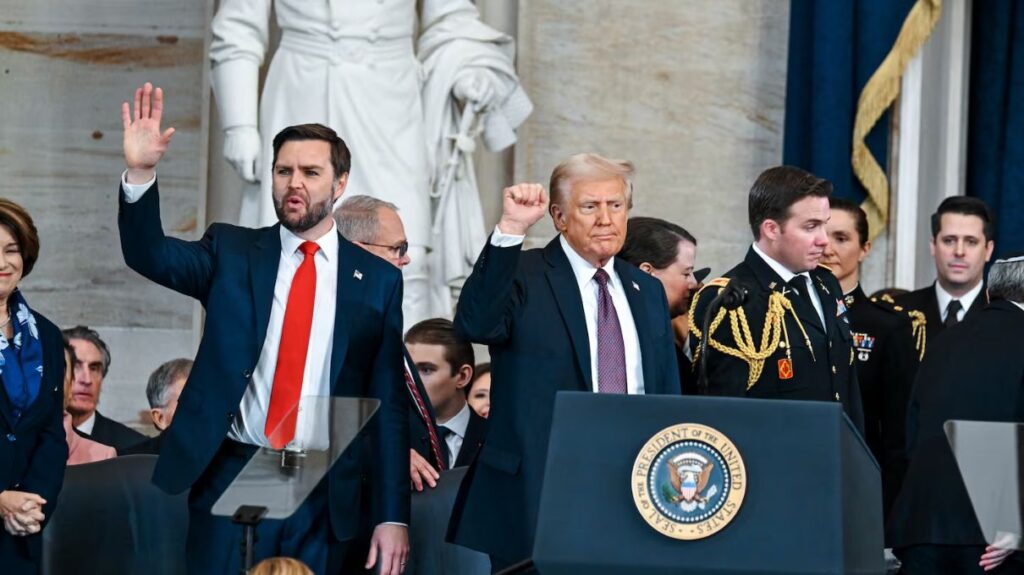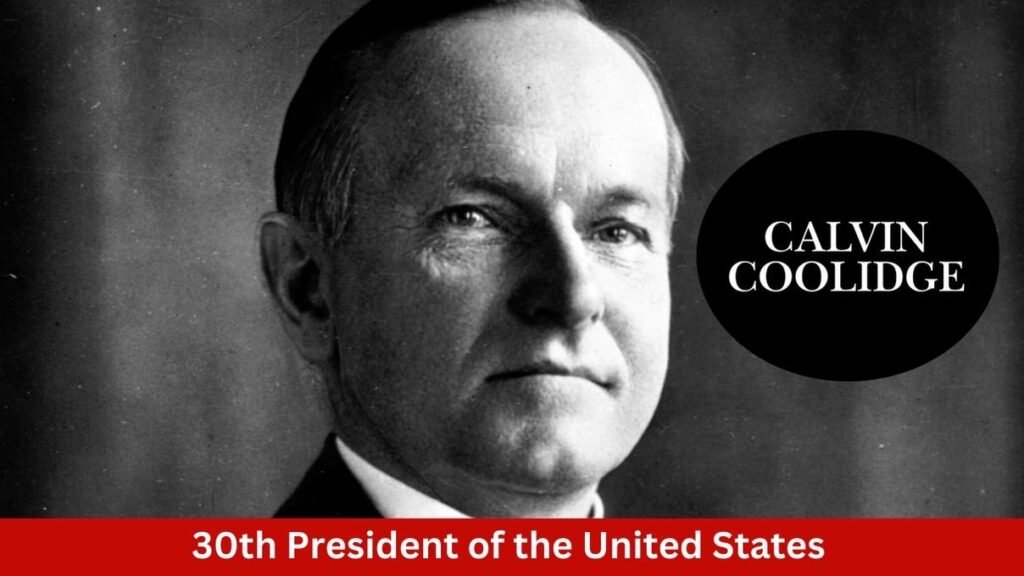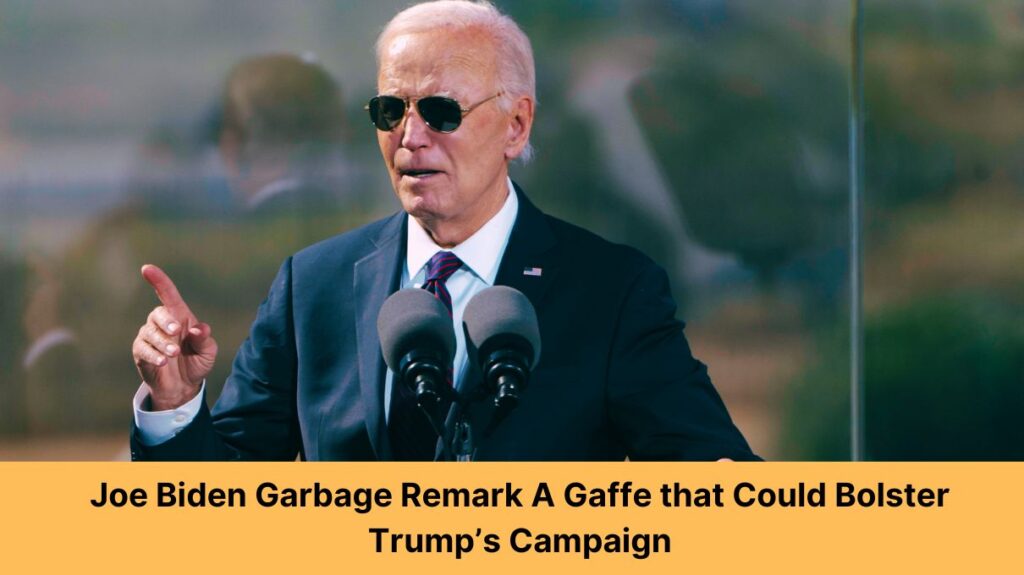The recent comments made by comedian Tony Hinchcliffe at a rally for former President Donald Trump have stirred a notable controversy, especially regarding their implications for Puerto Rico and its people. During the rally, held at Madison Square Garden in New York, Hinchcliffe reportedly referred to Puerto Rico as “a floating island of garbage.” This remark quickly drew a range of reactions, from laughter to discomfort among attendees, and left a mark far beyond the rally’s walls. The statement has since sparked a robust public and political response, particularly from lawmakers who find the joke inappropriate and offensive.
Puerto Rico Tony Hinchcliffe’s Remarks Controversy Erupts
Hinchcliffe’s joke wasn’t merely seen as a misguided attempt at humor but as an insensitive commentary that dismissed Puerto Rico’s significance and the dignity of its people. Lawmakers and public figures alike have been quick to condemn his choice of words, seeing them as a mischaracterization that could fuel harmful stereotypes about Puerto Rico. Such rhetoric often fuels misunderstandings about Puerto Rico’s unique status and its close ties with the U.S. as a territory. With Puerto Ricans making up a significant part of the voting demographic in states like New York and Florida, the incident highlights the fine line between humor and offense, especially when dealing with culturally sensitive issues.
Lawmakers React: Condemnation from Republicans and Beyond
Following Hinchcliffe’s comments, multiple prominent Republican legislators, including Sen. Rick Scott and Representatives Carlos A. Gimenez and Anthony D’Esposito, openly condemned the comedian’s remarks. Their quick, unified response was indicative of the weight of the issue and underscored the importance of maintaining respectful discourse about Puerto Rico. Sen. Scott’s reaction was especially pointed; he criticized Hinchcliffe’s comment as “not funny and not true,” further stating that Puerto Ricans are “amazing people and amazing Americans.” Scott’s statement went beyond just disapproval of Hinchcliffe’s words—he encouraged Americans to explore Puerto Rico, both as a travel destination and as an integral part of the U.S. cultural landscape.

Rep. Carlos A. Gimenez, another Republican, shared his views in similar terms, labeling Puerto Rico as the “crown jewel of the Caribbean.” His response not only defended Puerto Rico’s cultural significance but also attempted to reposition the island’s image, countering the comedian’s portrayal with a positive and respectful one. Rep. Anthony D’Esposito, a representative with Puerto Rican heritage, also weighed in, referring to Hinchcliffe’s comment as “garbage” and affirming the island’s value as a U.S. territory. The lawmakers’ shared stance reflects their commitment to fostering a constructive relationship between the mainland and Puerto Rico, especially at a time when negative perceptions could have tangible repercussions on Puerto Ricans’ lives and reputations.
Tony Hinchcliffe’s Defense and Social Media Fallout
After the initial backlash, Tony Hinchcliffe took to social media to address the growing controversy. In his response, he claimed that his joke was taken out of context and expressed his fondness for Puerto Rico as a personal vacation destination. He further asserted that his comments were intended as satire rather than a serious statement about the island. Despite his efforts to clarify his stance, many found his response insufficient, feeling it fell short of a genuine apology or acknowledgment of the broader issue his comment raised.
The defense was met with additional scrutiny, as critics noted that Hinchcliffe’s choice of words did little to repair the harm his initial joke had caused. In particular, his response seemed dismissive to many observers, lacking a clear understanding of the cultural and historical sensitivities surrounding Puerto Rico and its relationship with the U.S. Critics, including prominent figures like Rep. Alexandria Ocasio-Cortez and Minnesota Gov. Tim Walz, expressed their dissatisfaction, stressing that the comedian’s comments trivialized the struggles and achievements of Puerto Rican communities. Rather than defusing the situation, Hinchcliffe’s online response inadvertently extended the controversy, making it apparent that words, especially those that touch on national and cultural identities, can have a lasting impact.
Trump Campaign’s Stance and Puerto Rican Influence on U.S. Politics
In light of the controversy, a spokesperson for the Trump campaign, Danielle Alvarez, issued a statement distancing the former president’s views from Hinchcliffe’s remarks. Alvarez emphasized that the comedian’s comments were his own and did not align with Trump’s stance or values. The campaign’s swift response highlights the sensitivity surrounding Puerto Rico within political circles and the importance of clarifying any potential misunderstandings that could alienate Puerto Rican voters.
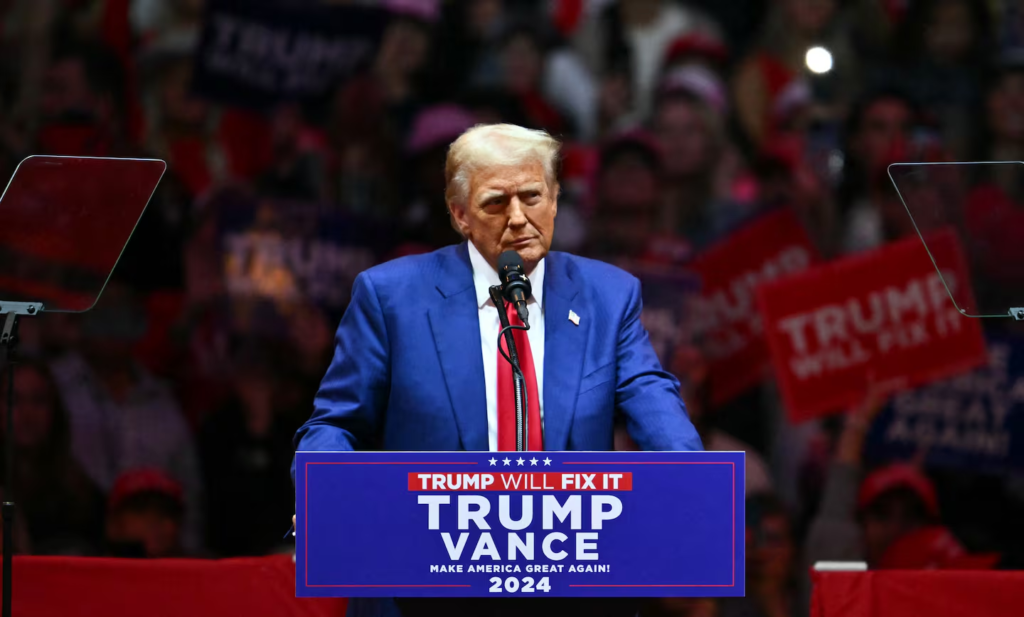
The Trump campaign’s response to the incident also underscores the growing significance of the Puerto Rican electorate in U.S. politics. Puerto Ricans represent a substantial voter base, especially in key swing states such as Florida, Illinois, and New York. Given their large population and potential influence, both parties recognize the importance of maintaining a respectful relationship with Puerto Rican communities. Puerto Rico’s unique cultural contributions and its close ties with the mainland U.S. only add to this political relevance. Therefore, while Hinchcliffe’s comments were dismissed as a comedian’s misjudgment, they also serve as a reminder of the complex dynamics at play when discussing U.S. territories in political settings.
Cultural Sensitivity in Comedy: Where to Draw the Line?
The controversy surrounding Hinchcliffe’s joke raises larger questions about the role of comedy in addressing sensitive topics. Comedy has long served as a means to address complex social and political issues, often pushing the boundaries of comfort and acceptability. However, it also carries the risk of alienating or offending specific groups, especially when jokes reinforce negative stereotypes or misunderstandings. In recent years, comedians have faced increased scrutiny over remarks that, while intended as humor, cross into territories that some audiences view as disrespectful or harmful.
In this case, Hinchcliffe’s comment on Puerto Rico struck a nerve because it not only seemed to demean an entire group but also touched on longstanding misunderstandings about Puerto Rico’s status and contributions as a U.S. territory. For many, the line was crossed when the joke transitioned from satire to a statement that could be interpreted as dismissive of Puerto Rico’s unique identity. This incident highlights the challenges comedians face in an increasingly diverse society, where audiences are more vocal about the need for respectful representation and inclusivity.
The Importance of Recognizing Puerto Rico’s Value and Contributions
At its core, the backlash against Hinchcliffe’s joke serves as a reminder of Puerto Rico’s significance in the U.S. Beyond being a beautiful Caribbean Island, Puerto Rico holds historical, cultural, and political importance. As a U.S. territory, it embodies a unique blend of American and Caribbean influences, making it a significant cultural hub within the U.S. Moreover, Puerto Rican communities in the mainland U.S. have enriched American society through their contributions in areas ranging from the arts and sports to politics and business.

Recognizing and respecting Puerto Rico’s contributions is essential not only to promote unity but also to ensure that misunderstandings do not hinder Puerto Ricans’ integration into broader American society. Lawmakers’ rapid defense of Puerto Rico after Hinchcliffe’s comment underscores the value placed on this unity, showing that respect and understanding are fundamental to the U.S.’s relationship with its territories. Puerto Rico’s contributions to U.S. society, coupled with the pride Puerto Ricans have in their heritage, make it clear that respect for the island is an expectation, not just a courtesy.
A Lesson in Respect and Representation
The incident involving Tony Hinchcliffe’s comment on Puerto Rico underscores the importance of respectful discourse, especially when addressing communities with rich cultural identities. While comedy can and should explore difficult topics, it must be done with a sensitivity that recognizes the boundaries of humor. In this case, Hinchcliffe’s joke was perceived as dismissive, leading to condemnation from lawmakers and public figures who viewed it as a slight against Puerto Rico’s people and culture.
This controversy highlights the need for awareness and respect in public discourse, whether in comedy or politics. Puerto Rico, as an integral part of the U.S., deserves recognition and respect for its unique heritage and contributions to American society. The reactions from lawmakers and the Trump campaign serve as a reminder that Puerto Rico holds a valued place in the American landscape—one that cannot be undermined by careless jokes or misunderstandings. As conversations about representation and respect continue to evolve, this incident serves as a lesson in the power of words and the lasting impact they can have on communities.

